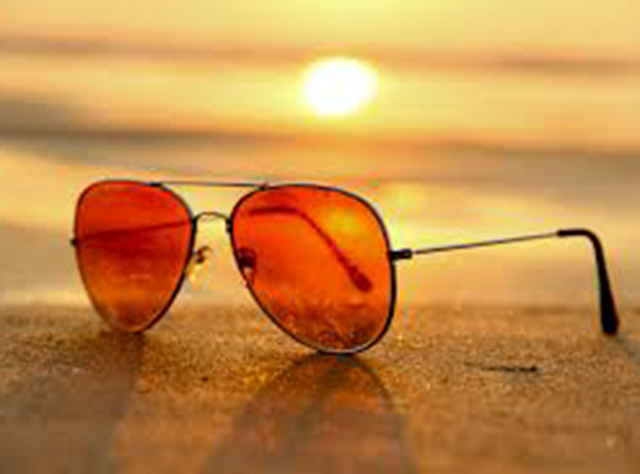
As we enjoy the summertime outdoors engaging in activities such as hiking, gardening, swimming, and home maintenance projects it’s important to consider the effects of the sun and protecting your eye & vision health! July is healthy vision month and while spending time outdoors and getting exercise are vital, so are your eyes. The American Academy of Ophthalmology and National Eye Institute offer the following recommendations that can be followed to protect your eyes from sun exposure and other hazards.
- Wear sunglasses with 100% UV or UV400 protection or sunglasses that block UV-A and UV-B rays on sunny AND cloudy days. Keep in mind that the sun’s damaging rays can penetrate clouds, fog, and haze.
- Wear a hat in addition to sunglasses; a broad-brimmed hat is the best option.
- Remember that the sun’s rays are strongest in the afternoon and at higher altitudes.
- Avoid getting an “eye sunburn”. This is called photokeratitis and can occur when the sun’s UV rays reflect off water or other surfaces and burn the eye. Symptoms include pain, redness, blurry vision, and possibly temporary vision loss.
- Do not look directly at the sun at any time (including during an eclipse). This can cause significant damage to the retina.
- Avoid tanning beds because they expose you to the same risks as outdoor sunlight and UV rays.
- Other tips:
- Prevent swimmer’s eye by wearing good swim goggles and splashing your closed eyes with fresh water after swimming.
- If you have a condition called “dry eye”, wear wrap-around glasses to protect yourself from wind and sun exposure and use artificial tears recommended by your doctor to keep your eyes refreshed.
- Wear protective eyewear when mowing the lawn, gardening, completing home maintenance tasks, and playing sports to avoid a serious eye injury.
Following these recommendations, this summer and year-round will allow you and yours to enjoy all outdoor activities fully and safely. If you are having issues with your vision consider taking a look at our low vision services.